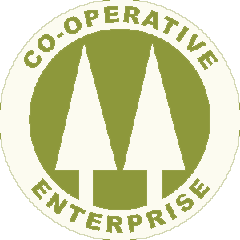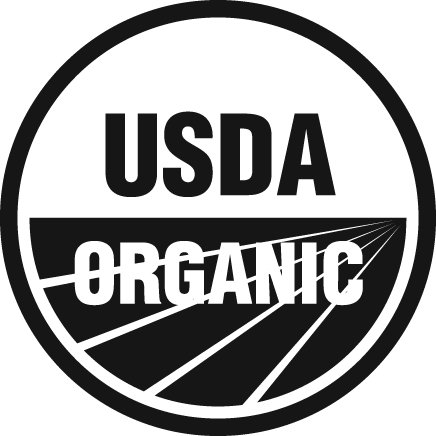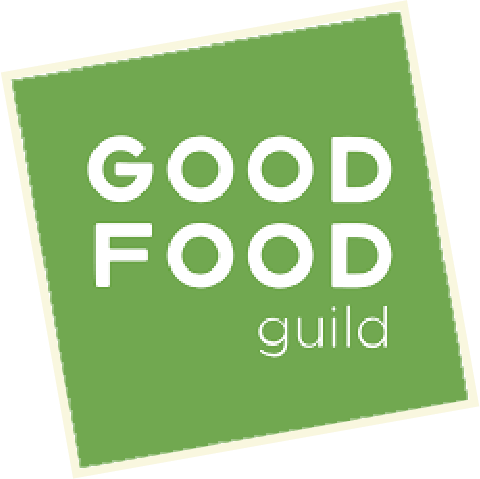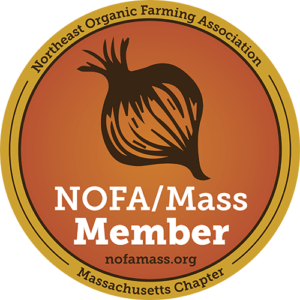
Here in western Massachusetts, we are fortunate to be part of a community brimming with exciting efforts to build a new and better food system. Farms of all kinds are starting up or heading in new directions: offering winter CSA shares, doing on-farm cheese or yogurt production, growing grains and selling them to local bakeries. Non-farm businesses are using more local ingredients in their restaurants or using them to produce value-added foods like salsas, meads, and (in our case) fermented pickles. New retail markets are forming for local/regional foods, such as winter farmers’ markets and a new food co-op. Non-profits are doing tremendously valuable work, as well, whether encouraging people to “Be A Local Hero, Buy Locally Grown” or running an incubator kitchen for start-up food businesses.
To someone like myself who sees enormous social value in transitioning to a regionally-based, organic food system, these developments are very encouraging. And, of course, such activity can be found in many other communities around the country (and beyond), not just in western Massachusetts.
In my view, this is an approach to social change that can produce substantial progress. Small farm and food businesses create the building blocks for the new food system. People generate increased market demand by choosing to buy their products. Non-profit organizations help in all sorts of ways. The momentum starts to build as more people come to be exposed to the benefits of a regional, organic food model–as more people get to taste the really good food it puts out, as they see the farms in their communities beginning to thrive. And in time, people can even come to perceive a new food system taking hold (at least at the margins), and imagine the possibility that the corporate, industrial food system could truly be replaced.
But, while this work on a local/regional scale to start building the replacement for the current food system is hugely important (I would not have started a pickle business if I thought otherwise), I don’t see a true transformation of the food system happening by this avenue alone. We also need something like…well, the Occupy movement.
The Cheap Food System
A key challenge in trying to change the food system is that our political-economic system offers enormous advantages to the purveyors of industrial food. The result is that the big food corporations can sell their products for extremely low prices. With healthy, regionally-produced, organic food made to look expensive in comparison, it becomes difficult to compete. Those who see the benefits–and have the ability to pay–will buy regional, organic food. But, as long as we have a cheap food system, local efforts to change things will only be able to convince so many people to switch to the good stuff.
Of course, cheap food is not actually cheap. It’s just that a portion of its cost is being paid for at someplace other than the supermarket checkout. Our taxes, for example, fund the billions of dollars in subsidies–mostly going to the largest farms–for commodity crops like corn and soybeans, whose by-products can then serve as cheap ingredients for processed foods. Our ever-increasing health insurance premiums pay the bills for the diabetes and obesity epidemics caused by high-fructose corn syrup and other refined sweeteners.
Other costs are being substantially passed off to future generations. The current-day farm practices which are causing our agricultural soils to erode away ten times faster than they can be regenerated will mean less farmland from which our grandchildren will be able to feed themselves. And, the burning of fossil fuels to transport our food thousands of miles from farm to plate will result in an outsized burden for our descendants as the effects of climate change further unfold.
These are the kinds of “externalized costs”, as economists call them, which constitute the unfair advantage of corporate, industrial food. (Regional, organic food has such costs, too, but to a far smaller degree.) Until eliminated, this advantage will continue to stymie efforts to fundamentally change the food system. And yet, those working on a local/regional scale–as opposed to a national scale–are not going to be able to change this equation. This is where we need the Occupy movement.
There are, of course, the more everyday tools for effecting national political change–lobbying, petition drives, electoral campaigns. And, use of such tools has yielded some progress, as illustrated by programs in the Farm Bill promoting local food and conservation (as limited as they may be). But, as I see it (and I’m clearly not alone), not enough progress has been made. The problems of our food system are serious and urgent, and the ever-increasing influence of money in politics makes the prospect for serious change by everyday means very slim. Our food system needs a non-violent, direct protest movement that views our society’s challenges in a systemic way and demands serious change. The kind of change that would mean an end to the excessive advantage and influence held by corporations in our food system–and in our society as a whole. Our food system needs the Occupy movement.
Food as a Right, Not a Privilege
There is a second reason why our food system needs the Occupy movement. If we are to finally succeed in stripping the big corporations of their unfair advantage–the ability to pass off to society the social and ecological costs of their activities–then most of us are going to find our food costs increase. Having learned just how expensive “cheap” industrial food really is, we will have substantially switched to healthy, organic, regionally-produced food. The price on that delicious tomato from the organic farm down the road will finally beat out the price on that pale, sad excuse for a vegetable (or fruit, to be precise) flown in from who-knows-where. But the local, organic tomato will still cost more than the industrial version used to cost.
For many people–I would venture to suggest the clear majority of Americans–this will be a manageable adjustment. It will require a re-alignment of expectations about the percentage of household income spent on food: perhaps Americans will end up devoting closer to 24% of income on food as we did in the 1920s, up from the 9% we currently spend. Many millions of Americans, however, will be able to handle this–especially when one considers all of the societal costs which will have been avoided (societal costs, of course, eventually translating into individual costs like taxes and insurance premiums).
Still, a substantial number of Americans will not be able to afford higher food prices. Many of them cannot afford food even at current prices. Thus, what is already an imperative will become even more critical: that access to food be made a right, rather than a mere privilege. Every person deserves to be able to afford to eat healthy, nutritious food, and we as a society need to figure out how to make that an assured reality. This is not something that those involved in local efforts to change the food system can do much about. Communities can develop good food pantry networks or organize fundraisers for low income shoppers at farmers’ markets, but they’re in a poor position to institutionalize food as a right.
The Occupy movement, however, can help get us there. Just as with corporate advantage, this is not a challenge that is likely to be overcome by everyday petitioning and lobbying efforts. Establishing access to healthy food as a right will come only as part of a bigger societal shift. And, such a shift is precisely what the protesters at Occupy Wall Street have been talking about from the beginning. As stated in their Principles of Solidarity: “We are daring to imagine a new socio-political and economic alternative that offers great possibility of equality.” This is about moving toward a society in which it is not just the 1% that are guaranteed to eat. 100% are guaranteed to eat.
If, then, we are to build a truly new food system, I suggest this: Let us be engaged, wherever we are able, in that much-needed work of creating a better structure from the ground up–buying local/regional, starting or supporting small farms and food businesses, developing community gardens, joining support organizations. And in our broader-scale efforts, may we not give up on the standard citizen tools of the political process (letters, petitions, etc.). But at this moment, let us also give serious consideration to how we can best support and participate in the Occupy movement and help to chart its future direction.
After all, we are the 99%. It’s our movement, too, regardless of whether or not we have yet joined a single street protest. This is a moment with great potential to effect serious social change and move us toward becoming a more equitable and sustainable society. May we make the most of it.




